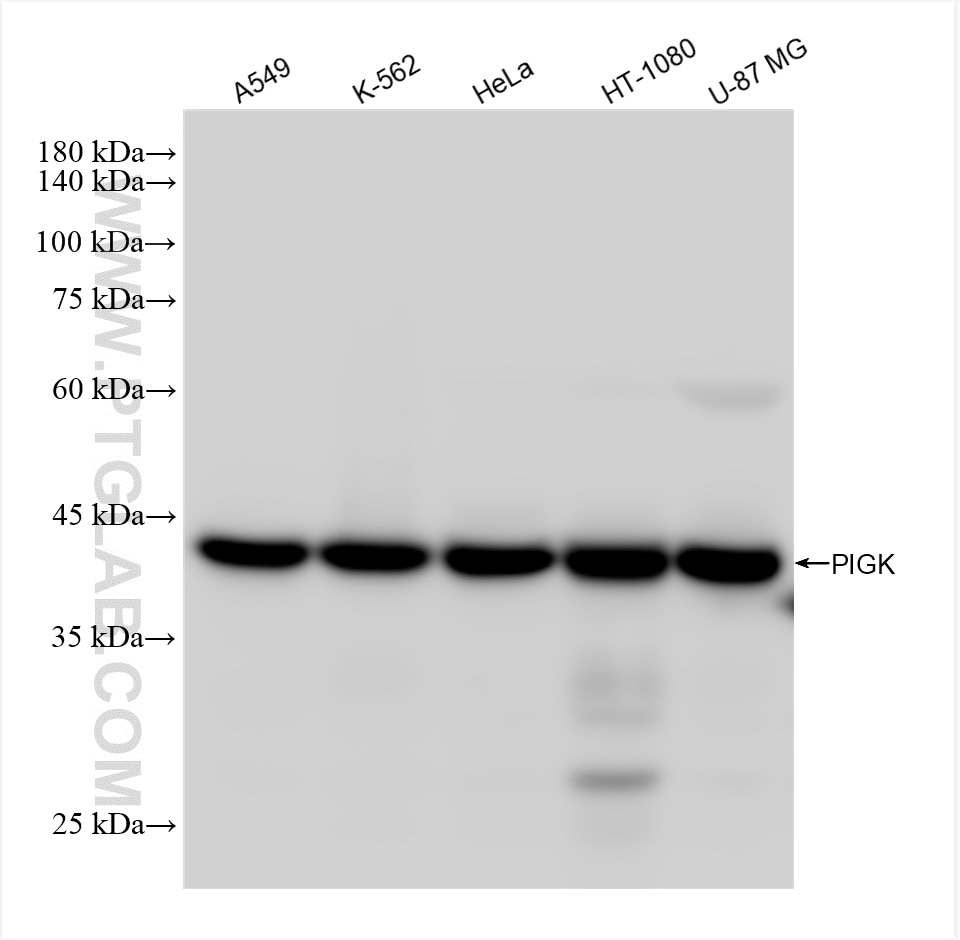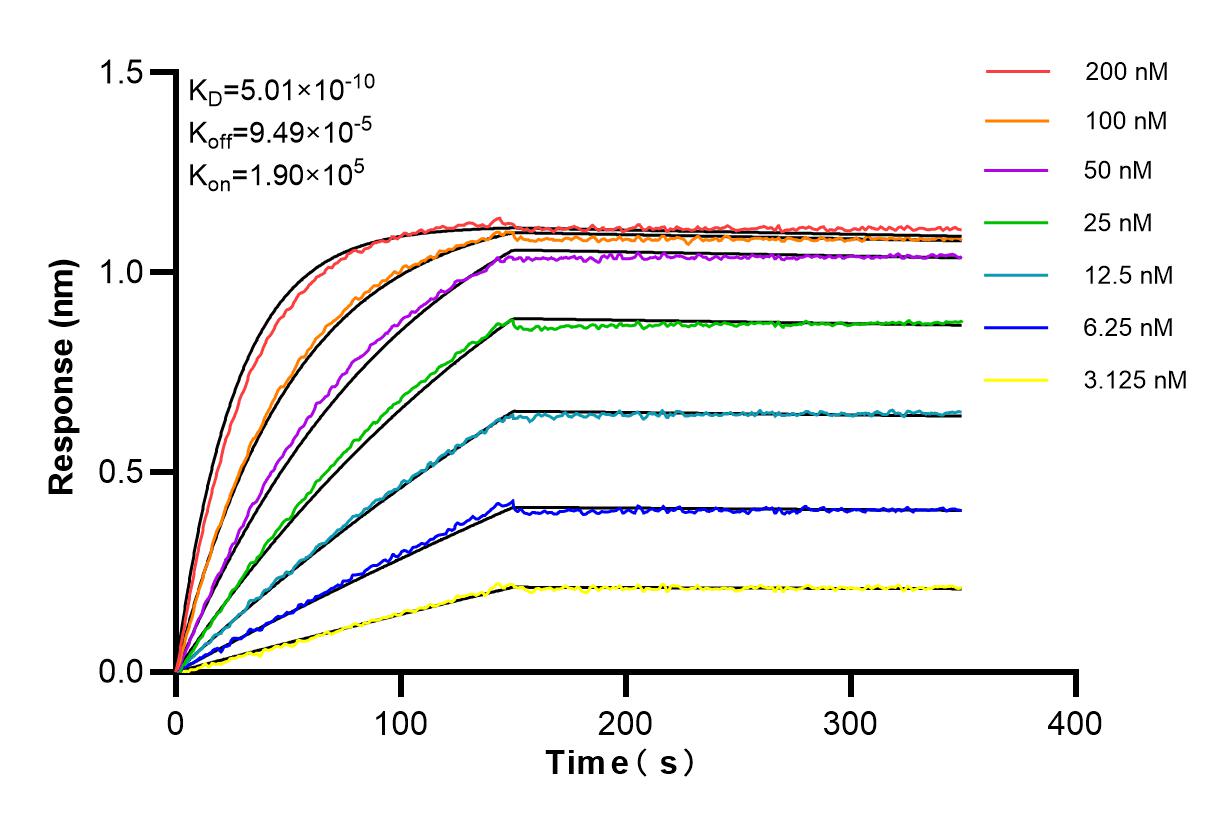Tested Applications
| Positive WB detected in | A549 cells, K-562 cells, HeLa cells, HT-1080 cells, U-87 MG cells |
Recommended dilution
| Application | Dilution |
|---|---|
| Western Blot (WB) | WB : 1:5000-1:50000 |
| It is recommended that this reagent should be titrated in each testing system to obtain optimal results. | |
| Sample-dependent, Check data in validation data gallery. | |
Product Information
84568-3-RR targets PIGK in WB, ELISA applications and shows reactivity with human samples.
| Tested Reactivity | human |
| Host / Isotype | Rabbit / IgG |
| Class | Recombinant |
| Type | Antibody |
| Immunogen | PIGK fusion protein Ag3497 Predict reactive species |
| Full Name | phosphatidylinositol glycan anchor biosynthesis, class K |
| Calculated Molecular Weight | 45 kDa |
| Observed Molecular Weight | 40-45 kDa |
| GenBank Accession Number | BC026186 |
| Gene Symbol | PIGK |
| Gene ID (NCBI) | 10026 |
| RRID | AB_3672072 |
| Conjugate | Unconjugated |
| Form | Liquid |
| Purification Method | Protein A purfication |
| UNIPROT ID | Q92643 |
| Storage Buffer | PBS with 0.02% sodium azide and 50% glycerol , pH 7.3 |
| Storage Conditions | Store at -20°C. Stable for one year after shipment. Aliquoting is unnecessary for -20oC storage. 20ul sizes contain 0.1% BSA. |
Background Information
Phosphatidylinositol glycan, class K (PIGK), is a crucial member of the glycosyl-phosphatidylinositol transamidase (GPIT) protein complex that attaches a diverse group of macromolecules to the plasma membrane of eukaryotes. The human PIGK gene is involved in the key step of transferring GPI-anchor to the respective protein molecules in the plasma membrane (PMID: 22824918). Endogenous PIGK has 2 isoforms, 45 kDa and 36 kDa (PMID: 34193731).
Protocols
| Product Specific Protocols | |
|---|---|
| WB protocol for PIGK antibody 84568-3-RR | Download protocol |
| Standard Protocols | |
|---|---|
| Click here to view our Standard Protocols |





